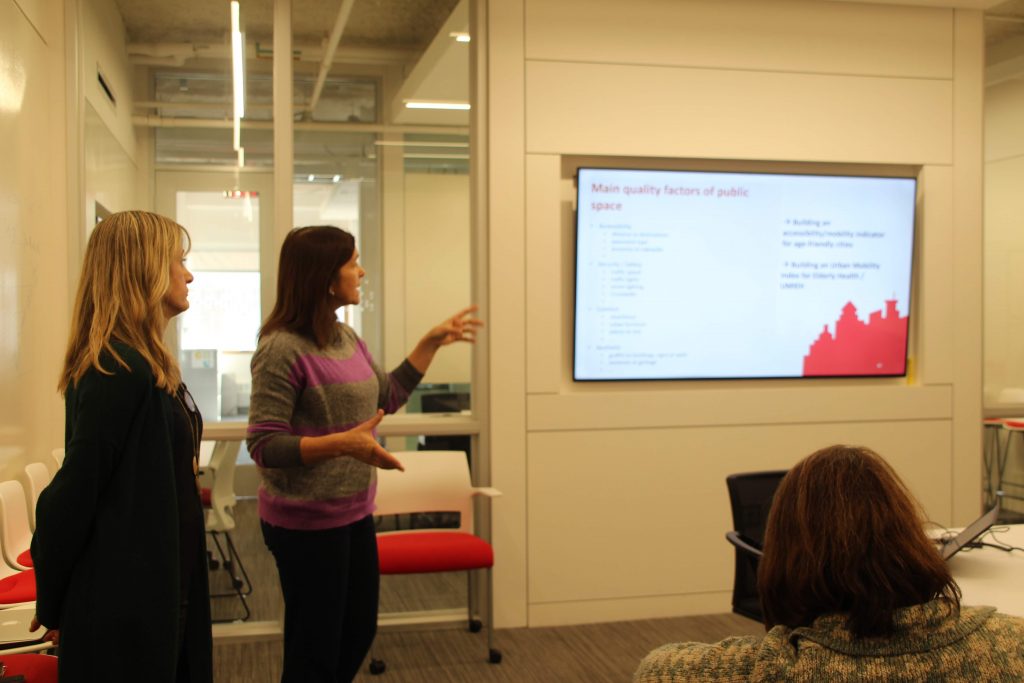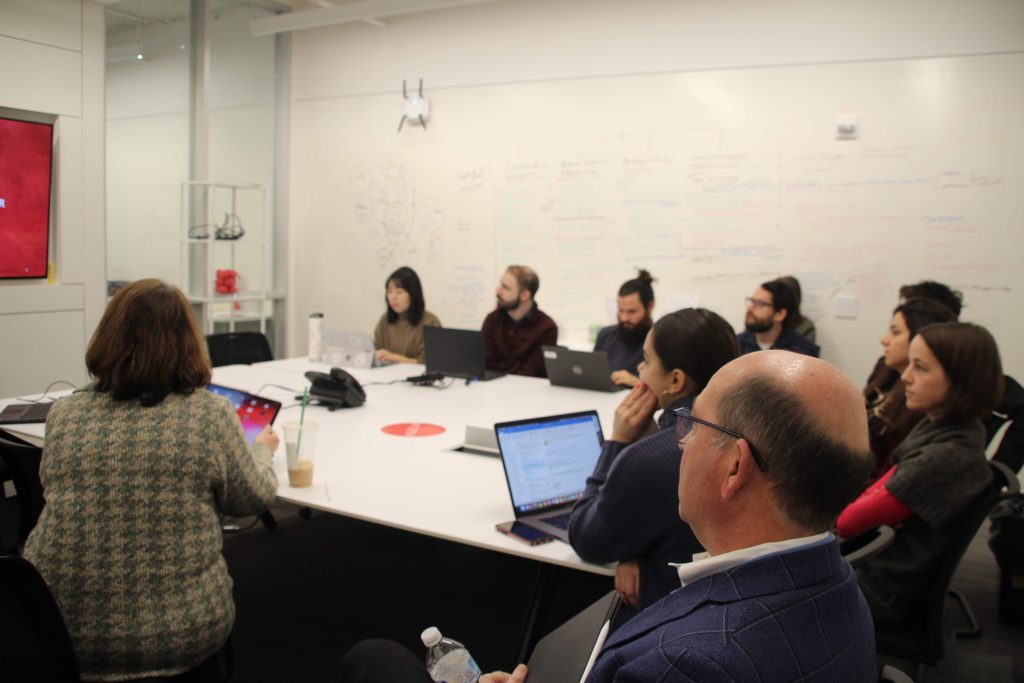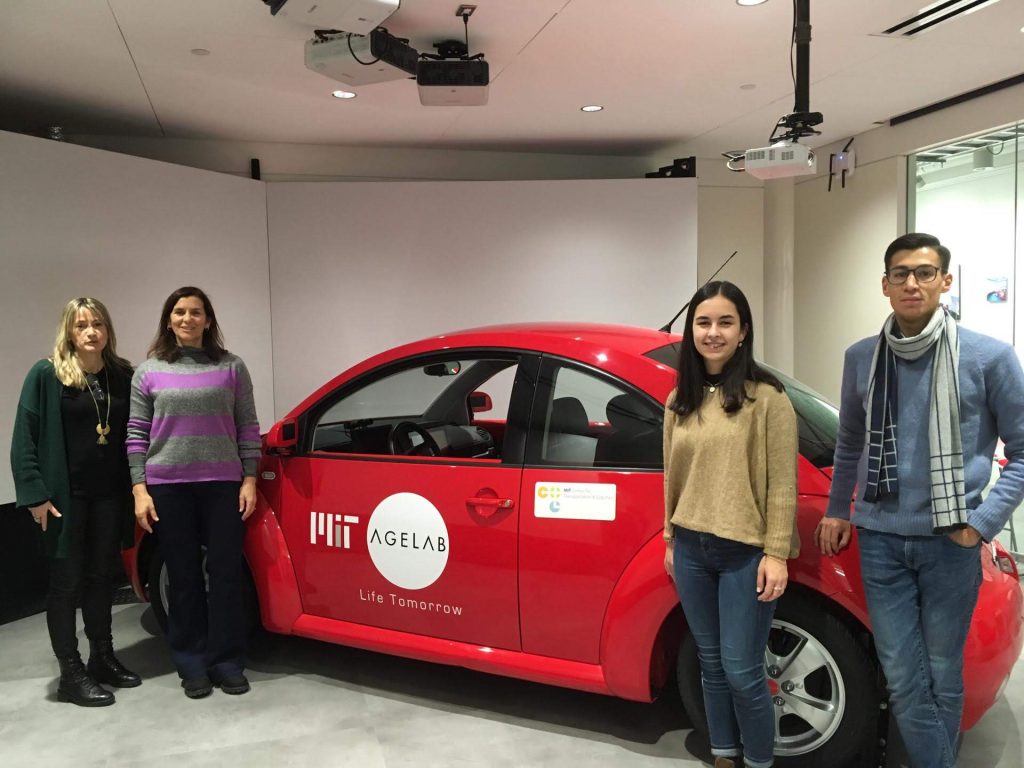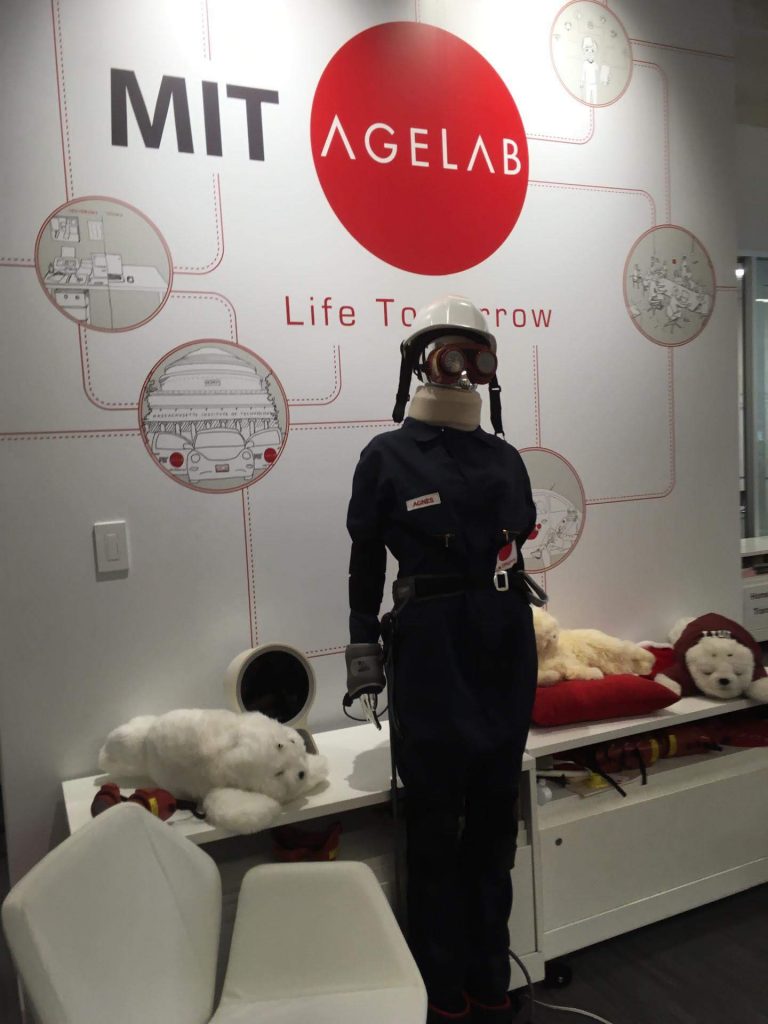On January 17th, the MOBI-AGE team went to the Massachusetts Institute of Technology (MIT) where we presented the work we have been developing in the scope of the project.
The MOBI-AGE project, part of the MIT-Portugal program, has a direct partnership with the MIT AGE Lab department. This department is composed of a multidisciplinary team that develops research in order to improve the quality of life of the elderly. They seek to develop technologies, but also to study the design of products and services that best suit the needs of this population and that promote active aging. An example of these products is is called AGNES (Age Gain Now Empathy System), a suit that aims to replicate the motor, visual, flexibility, dexterity and strength of a person around 70 years old. Another product is called Miss Daisy and is a driving simulator for assessing cognitive distraction, automation, disease and medication effects. Another product developed was a robot that reacts to touch and sound. With this product, the goal is to be a company to combat loneliness.
We were very well received at the AGE Lab, namely by director Dr. Joseph F. Coughlin and researcher Dr. Lisa D’Ambrosio. A presentation of the project was made, where there was an active participation of the AGE Lab colleagues, and ended with a very productive and interesting discussion about all the problems and aspirations that each participant has into account in an active and quality aging perspective.
A very relevant question discussed was: When we are designing mobility and accessibility for the elderly population, are we disregarding the interests and needs of the younger population?
Another was: To what extent will the elderly be willing and able to use technologies to meet their needs?
In addition to the interesting discussion and the conclusion that we have worked for the inclusive city where all groups feel included and safe, based on the assumption that a city that is ‘friendly’ to the elderly is a city that is friendly to all, with regard to to technology, the discussion focused on the work of the laboratory itself. In fact, this is a central aspect of the activity it develops: to see how technology can adapt to the needs of the elderly and vice versa.
It was also pointed out by the director of the laboratory that the work we develop should not have a connotation of simply ‘friendly’. We must be working for citizens who have made discounts all their lives and who are entitled to that life, with all the necessary conditions.
Issues such as gender and social conditions, including income, were also mentioned.
The laboratory has been increasingly concerned with the relationship between the city, transport and the elderly and a new course given by the laboratory is under preparation, which reveals its concerns in terms of specialized training.
The collaboration between these two teams, MOBI-AGE and AGE Lab, will continue and has been further strengthened, being of great interest to both parties.
AGE Lab website: https://agelab.mit.edu/



